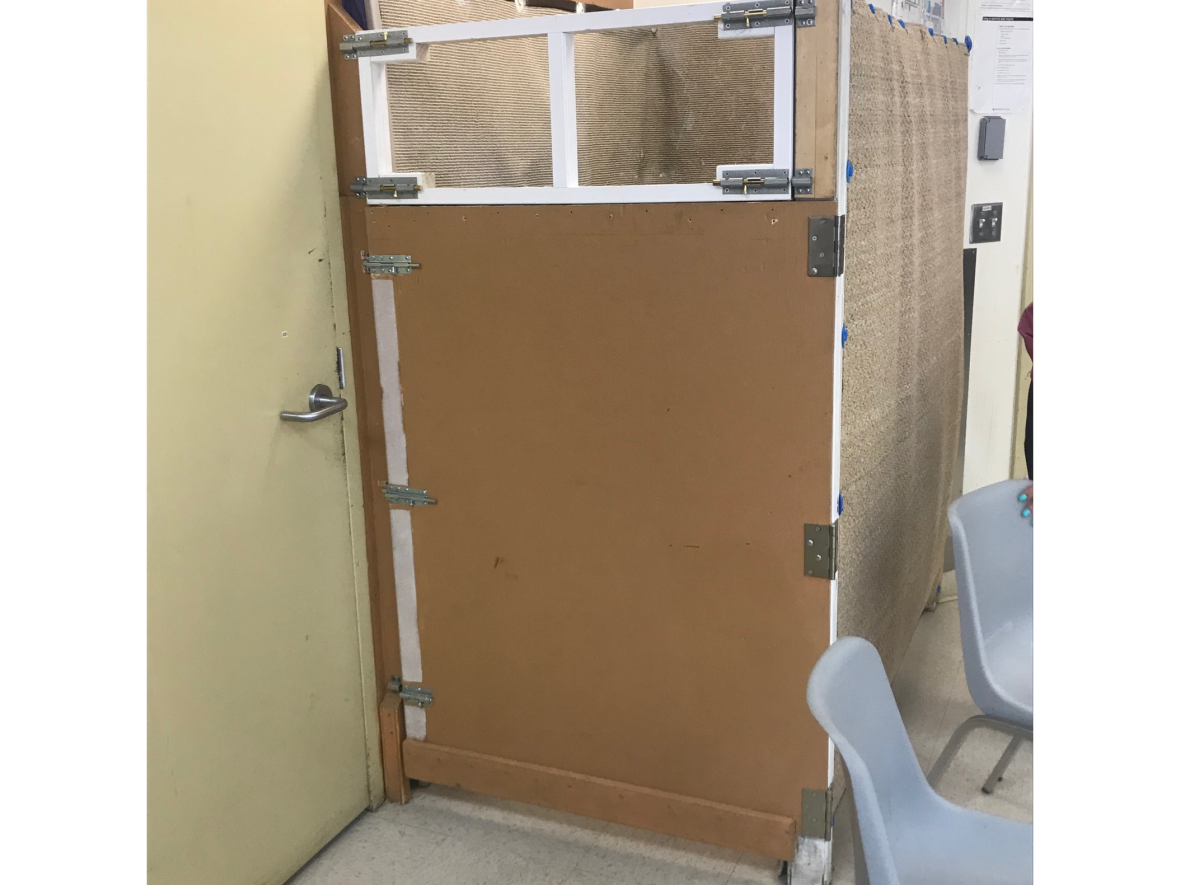Edmonton Public School Board considers decommissioning more seclusion rooms

As the use of seclusion rooms in the province grows, the Edmonton Public School Board (EPSB) discussed the possibility of decommissioning some and working toward fewer seclusion rooms — but EPSB Superintendent, Darrel Robertson, said despite this, the number could actually rise.
Seclusion rooms — a dedicated area in a school intended to provide a quiet and supervised space for a student who poses imminent danger to themselves or others — were banned in Alberta in 2018 by the NDP government but were reintroduced in 2019 after the UCP government took power.
In March, CBC reported on the increase in the amount of seclusion rooms and times they were used through data obtained through a Freedom of Information request to the province.
At a meeting Tuesday, the EPSB said careful consideration was needed when deciding whether to add or decommission seclusion rooms.
The board said establishing new classrooms with seclusion rooms has become a common practice, as it is considered better to have one and not need it than to need it and not have it.
But decommissioning rooms is also an option, if the school's principal and staff determine they are no longer necessary based on the school's population and needs.
Robertson acknowledged the increasing number of seclusion rooms and said numbers will likely continue to rise considering the return to in-person learning.
In the 2019-20 school year, the UCP government introduced a ministerial order in October to regulate seclusion rooms and began tracking data. The rooms were used nearly 5,000 times that year, the data shows.
That number excludes April, May, and June of 2020 due to remote learning because of the COVID-19 pandemic.
In the 2021-22 school year, seclusion rooms were used 6,059 times across Alberta.
In the first four months of the current school year, seclusion rooms were used 2,699 times.
Prevention of seclusion room use
Trustee Jan Sawyer emphasized the importance of consistent support for students and raised concerns about unfilled positions, such as educational assistants (EAs), which could impact students' stability. She said staffing consistency would positively influence the use of seclusion rooms.
"We have an educational assistant shortage," Superintendent Robertson said.
"What we do ask of our principals is in the event that you have an EA who is required to help assist with children that have complex needs, that you have some backup plans in the school," Robertson said.
Elizabeth Naas's son, Carter, who attended a Parkland School Division elementary school, previously told CBC he was often restrained and put into seclusion rooms.
"I would start to get upset and rock in my chair, and then they would yell at me so I would freak out. They would make everyone leave the classroom before they would drag me out so nobody would see," he previously said.
Elizabeth Naas said the need for fully staffed classrooms based on the needs of the students would have prevented her son's experience and that of many of the students using seclusion rooms.
"You can't put a a prisoner in solitude confinement. So why would it be OK to put a child in solitude?" Naas said Tuesday.
Naas said the frequency and approach in which her son was put into seclusion rooms left lasting impacts.
She said seclusion rooms were used for her son as a way to avoid helping him to re-regulate during a meltdown. But, having someone by his side to help him calm down and using regulation tools to stabilize his mood would have been more effective.
"It's a really awful spot for a teacher to be where they don't have the resources they need when there's children in their class that are are struggling.
One teacher with with 25 to 35 kids can't possibly give the preventative regulation needed for that child," Naas said.


